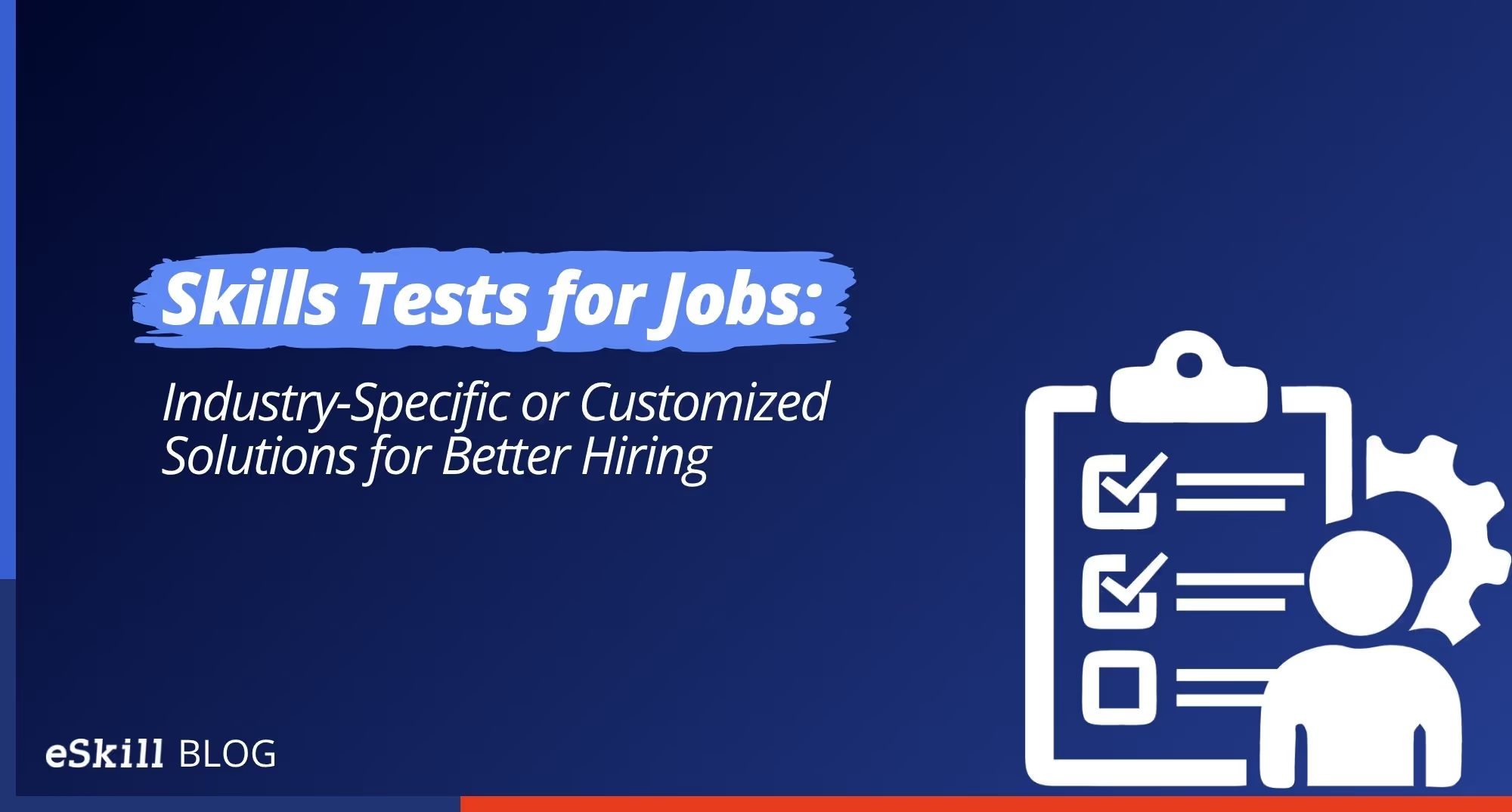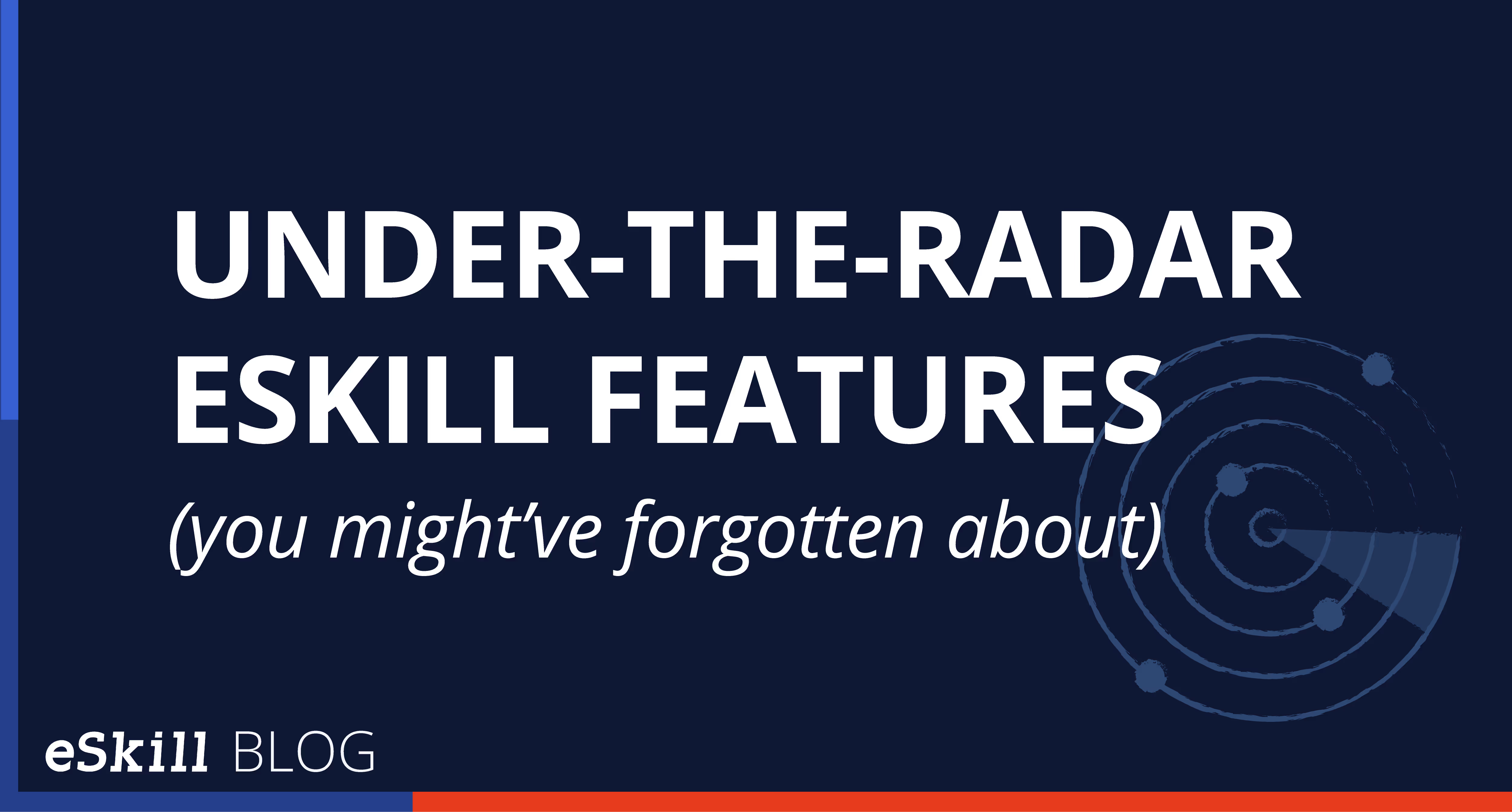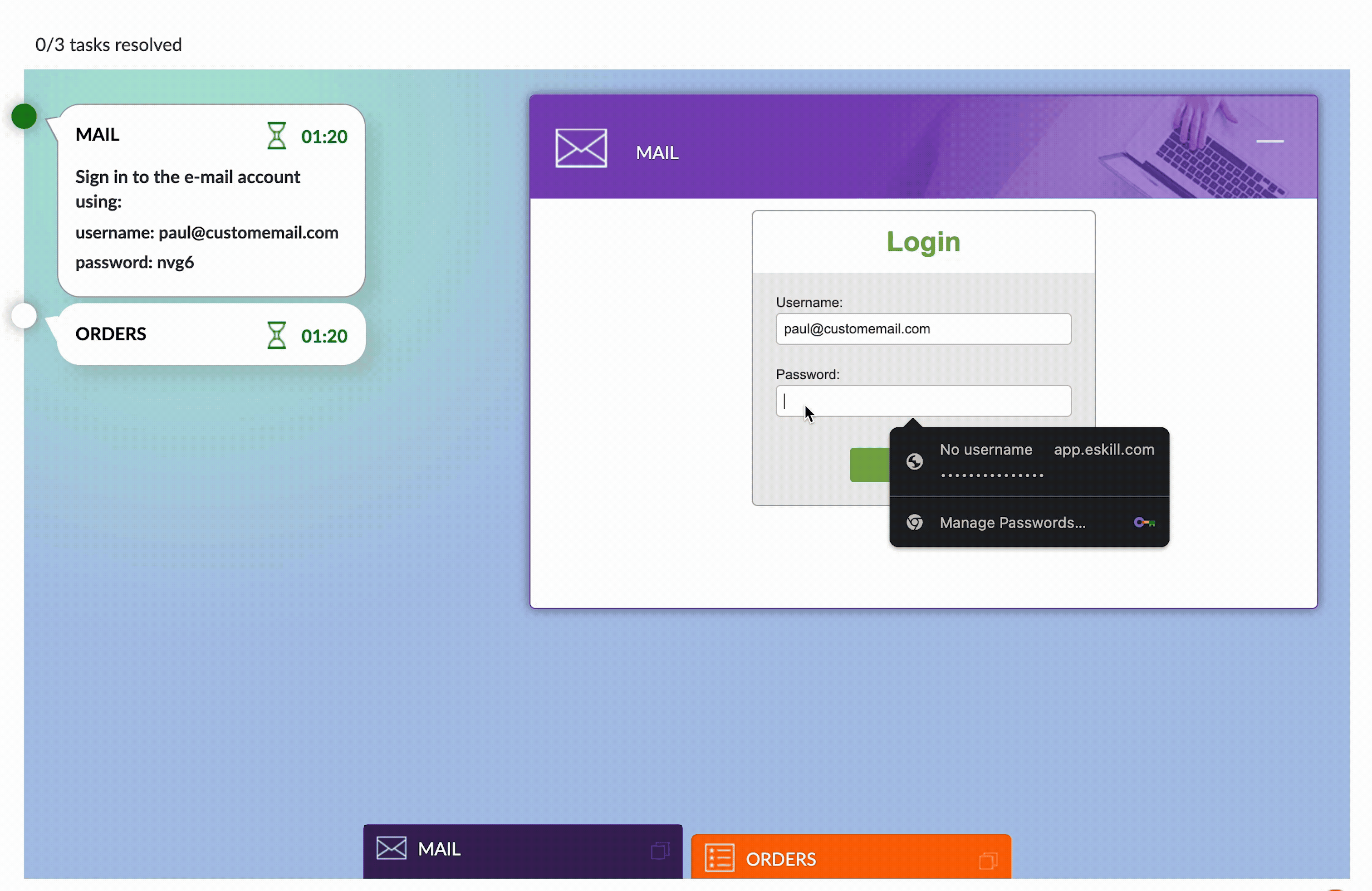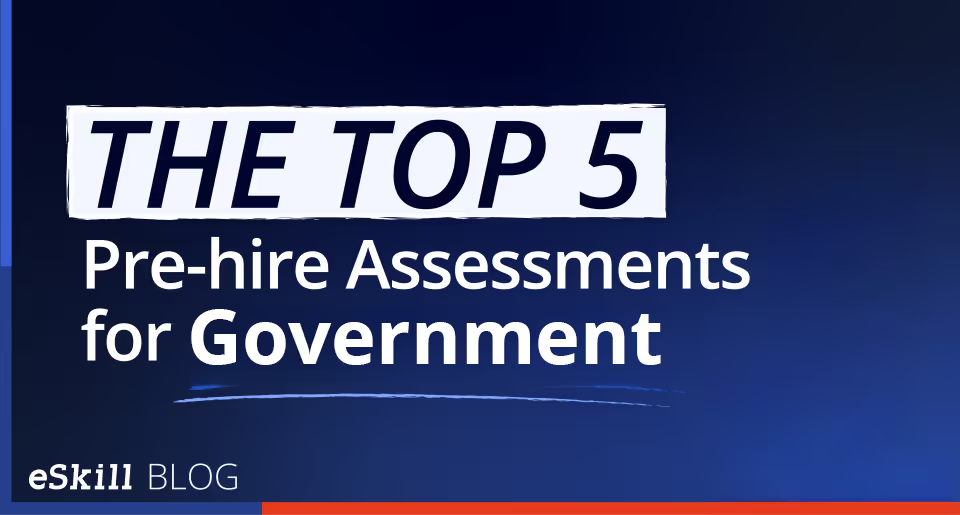Business leaders know that recruiting top talent is critical. However, this is challenging because we are in the midst of a global talent shortage. According to a Korn Ferry report, this talent shortage is in excess of 85 million people. In fact, around 77% of employers say they are having difficulty finding qualified candidates.
In the case of senior management and technical fields such as information management and software development, high performers tend to be 800% more productive than average employees, as shown by a McKinsey study.
Organizations need robust tools to measure competencies, identify growth areas, and enable personalized career progression. Sporadic performance reviews are no longer sufficient because organizations must regularly assess and develop employee skills to remain competitive.
Hiring the right talent can improve productivity and help your organization maintain its competitive edge. On the other hand, if you hire the wrong talent, everything runs inefficiently, and productivity suffers. This is why companies use skills tests for jobs.
What is a Basic Skills Assessment Test?
Employers use job skills assessments to measure job applicants’ abilities for all positions and ensure they have the skills necessary to perform a job. They find skills assessment tests for employment particularly useful because they can be used to recruit applicants for most entry-level and administrative positions.
Organizations have learned that job skills tests are essential to identify top talent. This is why many have implemented an industry-leading assessment solution like the eSkill Talent Assessment PlatformTM. Using skills tests for jobs helps them accomplish the following objectives.
- Hire the Right People: By using job skills tests, organizations can avoid hiring people who lack the required skills to do a job. Hiring mistakes are expensive, hurt team morale, and negatively impact productivity. According to the U.S. Department of Labor, a single bad hire can cost an average of $17,000 but can be significantly more when considering recruiting expenses, incomplete projects, staff disruption, loss of customer goodwill, and potential litigation costs.
- Reduce Turnover: U.S. businesses lose $1 trillion annually due to voluntary turnover, and replacing an employee costs around one-half to two times their annual salary. If employees are comfortable in a new job and feel they are an integral part of a team, they are more likely to remain with a company instead of exploring other opportunities.
- Streamline Onboarding: According to the Society for Human Resources Management (SHRM), organizations with an effective onboarding program retain 91% of new hires during their first year. It is important thatonboarding be a positive experience because it is a new hire’s introduction to the company. Organizations can streamline the onboarding process by using job skills test results to tailor the process to their specific needs.
How are Skills Tests Used in Hiring?
eSkill clients have access to a library of hundreds of validated, job- and subject-based skills tests for jobs. Hiring teams can use the off-the-shelf versions or build customized assessments by selecting questions from multiple job skills tests.
For example, if you are hiring an administrative assistant with extensive customer interaction and also assume responsibility for creating and maintaining reports and spreadsheets, you can choose questions from the Administrative Assistant, MS Word®, and MS Excel®, Customer Service, and Telephone and Email Etiquette skills tests.
The best way to verify that applicants can do a job is to observe them performing job-related tasks, so you should also include simulations that replicate job situations in skills tests for jobs. Since almost 80% of available jobs require computer proficiency, many use an MS Office® Simulation to test Word® and Excel® skills.
Within ten years, 90% of all jobs will require digital literacy skills. So many also include the Digital Literacy Simulation. HR teams can also use the Chat and Multitasking simulations to evaluate candidates for positions that require good organizational skills.
Many companies need to include proprietary content in job skills tests. For instance, if you are hiring mechanics to service fleet vehicles, you can choose questions from the Automotive Mechanic Knowledge and Mechanical Aptitude skills tests and add questions about the types of vehicles in your fleet.
How Do You Create a Skills Inventory?
A skills inventory is a comprehensive evaluation of the education, experience, skills, and seniority levels of your staff. It helps you and your team assess your talent pool, identify knowledge gaps, and develop a hiring strategy that aligns with your company’s goals.
The primary purpose of compiling a skills inventory is to create a benchmark that shows the skills you have in your talent pool. The criteria you measure will help you:
- Identify Top Talent: Job skills tests help you identify top performers with potential for advancement so you can groom them for leadership roles.
- Pinpoint Skill and Knowledge Gaps: Skills tests for jobs help you identify areas where employees need further training and development that will help them excel in their current jobs and acquire in-demand skills to take on new responsibilities.
- Provide Performance Feedback: Managers can set clear expectations by giving constructive feedback during assessment discussions on strengths and improvement areas.
- Enable Goal Setting: Insights from job skills tests help managers ensure goals and objectives are aligned with individual development needs and organizational objectives.
- Determine Rewards and Recognition: Skills tests support the production of documentation that justifies compensation, bonus, and promotion decisions and demonstrate they were based on merit and achievements.
- Increase Engagement: Employee engagement and retention improve because employees know skills tests for jobs lead to growth opportunities.
From there, you can create individual training programs to help current employees acquire the skills they will need, including them in hiring plans. You can then implement regular assessments to continually monitor progress.
What is an Example of a Skill-Based Assessment?
Organizations use various types of skills tests to determine if applicants have the ability to do a job. Well-designed job assessments include a variety of components that are tailored to an organization’s needs, such as:
- Skills Tests: Skills tests measure technical proficiency for candidates who apply for jobs that require competency in specialty areas, such as software, accounting, or equipment operation.
- Simulations: Exercises mimicking real-world tasks reveal abilities in action and decision-making.
- Psychological Assessments: Personality, cognitive skills, and emotional intelligence predict on-the-job behaviors.
- Work Sample Reviews: Evaluating writing samples, presentations, reports, and other contributions provides insights.
- Behavioral and Cultural Fit Assessments: These show whether applicants’ motivations are in alignment with company values.
The following are some best practices we recommend HR professionals follow to ensure their job skills testing initiatives drive results:
- Use a variety of assessment tools to get a complete picture of competencies.
- Customize skills tests for jobs based on the most vital capabilities for each role.
- Make job skills tests a regular, ongoing program. Do not just conduct annual reviews.
- Provide notice and preparation time for skills demonstrations and tests.
- Train managers on consistent, unbiased job skills testing techniques.
- Establish clear rating criteria aligned to job expectations and corporate standards.
- Share results transparently while maintaining confidentiality.
- Tie skills tests for jobs directly to business objectives and capabilities needed to achieve them.
Can Skills Tests be Used for All Kinds of Jobs?
You can include job skills tests, cognitive assessments, behavioral assessments, or a combination in your hiring strategy. The type, or types, you should use depend on the jobs you want to fill.
eSkill clients have access to a library of hundreds of subject- and job-based skills tests for jobs for just about every occupation. Hiring teams can use the pre-prepared versions as-is or modify them by deleting questions and designating question difficulty levels.
Here are examples of the more than 800 job-specific skills tests that are available in the eSkill Assessment Library:
- Administrative Assistant
- 911 Dispatcher
- Credit Analyst
- Civil Engineer
- Customer Service Representative
- Executive Assistant
- Food and Beverage Manager
- Firefighter
- Hazardous Material Specialist
- Logistics Manager
- Machine Learning Engineer
- Mechanical Engineer
- Medical Transcriptionist
- Paraeducator
- Python Developer
- Web Designer
Skills tests help HR teams confirm candidates have the abilities and experience needed to do a job. They normally consist of multiple choice, true/false, and short answer questions. However, many hiring teams also include simulation questions that replicate their work environment so they can evaluate how applicants will perform on the job.
Video response questions are also popular because they enable hiring teams to measure skills that are difficult to evaluate using written assessments, such as verbal communication, presentation abilities, and foreign language skills.
What are Five Examples of Skills?
According to Nth Degree, the five skills that are most in-demand by employers are critical thinking and problem-solving, teamwork and collaboration, professionalism and a strong work ethic, oral and written communication, and leadership.
- Critical Thinking and Problem-Solving: Both are necessary for virtually every job because employees need to be able to analyze evidence, question assumptions, test hypotheses, and draw conclusions from all types of data.
- Teamwork and Collaboration: Employees who interact and collaborate with colleagues often reach a better conclusion or come up with a better idea than they would on their own because everyone brings a different skill set to the table.
- Professionalism and a Strong Work Ethic: Organizations expect employees to exhibit impeccable professionalism and a strong work ethic. According to a National Association of Colleges and Employers (NACE) survey, 100% of employers rated them as essential but said only 42.5% of employees exhibit these behaviors.
- Oral and Written Communication: While proficiency in digital technology is necessary for many careers, face-to-face and written conversations are also important. About 95.9% of employers say these skills are important and say only 41.6% of graduates demonstrate efficiency in them.
- Leadership: When employees have developed their leadership style, they contribute to a culture that inspires their team to be enthusiastic and excited about their work, which improves productivity.
Mitigating Unconscious Bias
Unconscious bias can negatively impact talent decisions. The use of skills-based employee assessments reduces bias by providing objective insights into employees’ capabilities. Studies show unconscious bias creeps into workplaces more than expected.
Nearly 80% of HR professionals admit that bias, which influences their perceptions, affects hiring and promotion decisions. Employee assessments minimize bias by providing data-driven insights and focusing on proven skills and knowledge rather than subjective factors.
The Cost of Hiring Mistakes
All organizations strive to avoid hiring mistakes because they are expensive and negatively impact productivity. For example, if a manager earning $60,000 is terminated, the cost to a company can be as high as $240,000, including hiring costs, salary, benefits, severance, disruption to productivity, and lost business opportunities.
The business also loses what it has invested in the employee. The cost to hire and onboard a new hire is estimated to be 50%-60% of the employee’s salary, while overall costs range from 90% to 200%. As an example, losing an employee who makes $60,000 a year could cost $35,000 to $40,000 to replace, while overall costs could potentially range from $54,000 to $120,000.
Get Started with Job Skills Tests
Organizations need staff that can pivot with industry transformations, and workers want to expand their capabilities so they can qualify for more challenging jobs. Comprehensive job skills assessments make both possible by enabling HR teams to proactively identify workforce opportunities.
Implementing continuous skills assessment tests for employment is a smart talent strategy for organizations that want to build an agile, resilient workforce. Assessments provide the tangible insights required to nurture capabilities, improve job fit, evaluate highflyers, and guide personalized development.
Requiring applicants to complete skills tests for jobs will help your organization improve hiring outcomes because decisions will be based on hard data. It will also help you reduce hiring costs and decrease time-to-hire. Many eSkill clients have reduced hiring costs by around 70% and time-to-hire by about 60%.
Are you ready to learn how job skills tests can help you improve hiring outcomes throughout your organization? Contact us to request a demo.

Get ademo.






